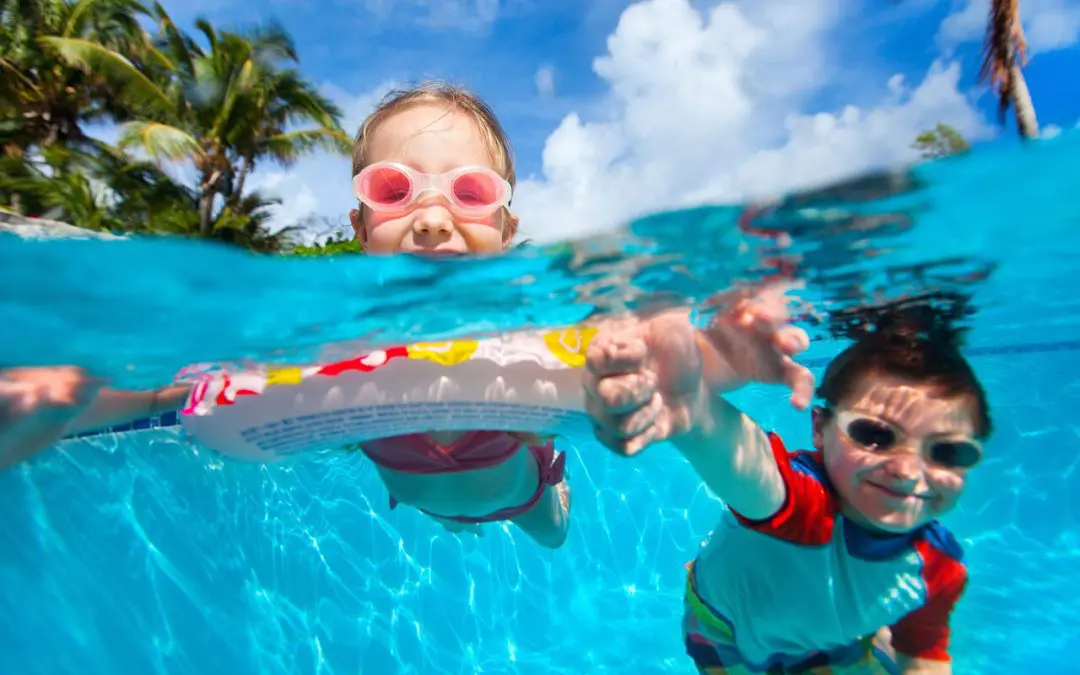Supervision is Key for Swimming Pool Safety
One of the most important aspects of swimming pool safety is constant supervision. Children and inexperienced swimmers should never be left unattended near the pool. Designate a responsible adult to watch over the pool area during swimming sessions. This designated supervisor should be free from distractions, such as mobile phones or books, to ensure they can respond quickly in case of an emergency.
Install Fencing and Barriers
Installing a fence around your pool is a critical safety measure. The fence should be at least four feet high and have a self-closing, self-latching gate. This barrier helps prevent unauthorized access, especially by young children. Additionally, consider installing alarms on the gate and pool area to alert you if someone enters without permission.
Use Pool Covers
Cover the pool to prevent accidents and keep debris out when it is not in use. Ensure the pool cover is sturdy and can support a person’s weight to avoid accidental falls. Automatic pool covers provide convenience and additional security by allowing you to easily cover and uncover the pool.
Maintain Proper Water Chemistry for Swimming Pool Safety
Keeping your pool water clean and balanced is essential for both safety and health. Regularly test the water for pH levels, chlorine, and other chemicals to ensure it is safe for swimming. Proper water chemistry prevents the growth of harmful bacteria and algae, reducing the risk of skin infections and other health issues.
Learn and Teach Water Safety Skills
Everyone in your household should learn basic water safety and swimming skills. Enrolling in swimming lessons can build confidence and competence in the water. Additionally, ensure that family members know how to perform CPR and basic first aid. In an emergency, these skills can be life-saving while waiting for professional help to arrive.
Use Pool Alarms and Safety Devices
Pool alarms can provide an extra layer of security by alerting you if someone enters the water unexpectedly. Various types of alarms are available, including those for doors, gates, and the pool itself. Additionally, consider using safety devices such as life rings, floatation devices, and reaching poles, and ensure they are easily accessible in case of an emergency.
Establish Pool Rules for Swimming Pool Safety
Setting clear rules for pool use can prevent accidents and ensure everyone understands the importance of safety. Common rules include not running near the pool, not diving in shallow areas, and not swimming alone. Make sure all pool users are aware of these rules and enforce them consistently.
Regular Maintenance and Inspections
Regularly inspect your pool and its equipment for any signs of wear and tear. Ensure the pool’s filtration system, pumps, and drains function correctly. Fix any broken tiles, loose handrails, or other potential hazards promptly to maintain a safe swimming environment.
Educate Guests About Pool Safety
When hosting guests, especially those with children, take the time to educate them about your pool safety rules. Inform them about the location of safety equipment and encourage them to supervise their children closely. Providing this information can help prevent accidents and ensure everyone enjoys a safe and pleasant experience.
Be Prepared for Emergencies
Despite all precautions, emergencies can still happen. A well-stocked first aid kit and a phone near the pool can be crucial in quickly responding to accidents. Keep emergency contact numbers handy and ensure everyone knows how to call for help.
Owning a swimming pool means ensuring it is a safe environment for everyone. By implementing these safety measures, you can enjoy the benefits of having a pool while minimizing the risks. Remember, vigilance and proactive planning are key to preventing accidents and keeping your pool area safe.
Swimming Pool Safety FAQs
How often should I check the chemical balance of my pool water?
It’s recommended to test your pool water at least once a week. More frequent testing may be necessary during periods of heavy use or after rainstorms to ensure safety and cleanliness.
What maintenance tasks should I regularly perform to ensure pool safety?
Regular maintenance tasks include checking the filtration system, inspecting for broken tiles or loose handrails, ensuring the water chemistry is balanced, and verifying the functionality of pool alarms and safety devices. Perform these checks routinely to maintain a safe pool environment.
How can I make my pool area more child-friendly?
Ensure the pool area is child-friendly by installing a four-foot fence with a self-closing, self-latching gate. Keep toys and attractive items out of the pool area to reduce the temptation for children to enter unsupervised.
Brand Name Home Inspections provides inspection services to homebuyers and sellers in Northern California. Contact us to request an appointment.

